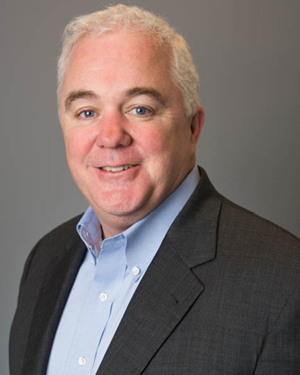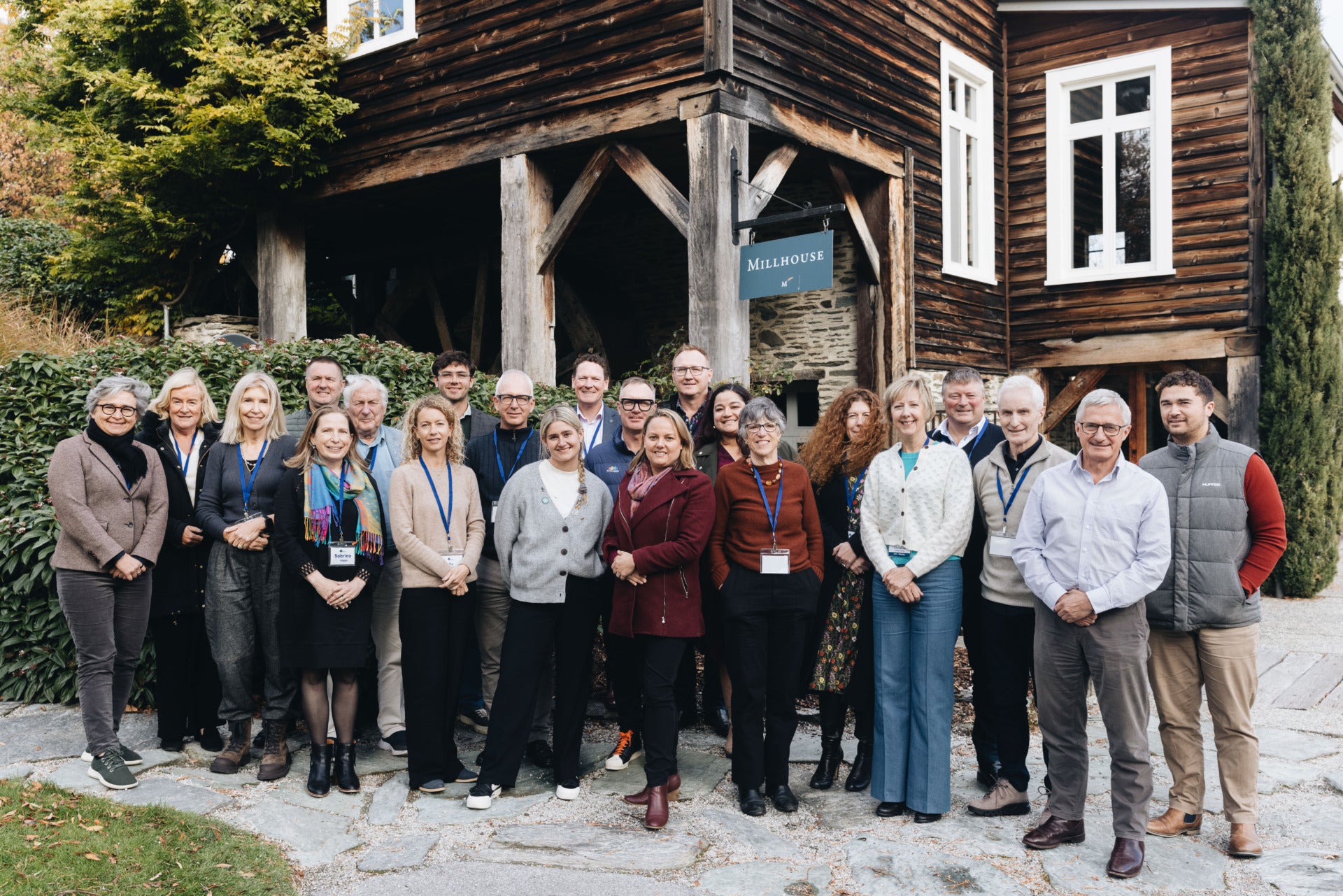The Next Move is a new series that explores the critical choices facing business leaders as they respond to the extraordinary impacts of COVID-19. Each month, we bring a diverse array of expert voices into dialogue with the public across blogs, webinars, social media, and digital seminars. Click here to register for a webinar on October 15 with some of the experts in this piece.
>Does anyone remember September 2019? That was the month when world leaders gathered in New York at the UN for the Climate Action Summit. It seemed at the time that momentum was building for changing the course on climate. Inspired by Greta Thunberg, students around the world were striking to prompt action to address what they saw as a looming catastrophe. Business and government leaders were making high profile and meaningful commitments to lower greenhouse gases. The news cycle included coverage of climate change and its devastating impacts.
Since then, our collective consciousness has shifted abruptly as we face the devastating health and economic costs of COVID–19 and the pernicious consequences of deeply-rooted racial injustice. Yet climate change continues unabated.
In a New York Times article published this week, journalists John Branch and Brad Plumer describe the perilous crossroads we now face. Citing climate experts, they report that some impacts of climate change are already irreversible. However, if we act now we may be able to avoid even greater catastrophes.
But priorities amongst Americans have changed. Harris Polls show that amid Covid-19, Americans don’t care about climate change anymore. In December 2019, American adults said climate change was the number one issue facing society. But in a survey taken in late July, concern for climate had fallen to second from last place.
At the Institute’s Business & Society Program, we are eager to understand what decisions business leaders need to make now to ensure that actions to combat climate change stay in the forefront – even as they wrestle with other urgent crises.
How we wonder, are companies prioritizing to solve multiple crises at the same time? How are they balancing the tensions between addressing the immediate consequences of the pandemic and the urgent calls for racial justice and taking action to avert a climate catastrophe that may seem further off?
Business leadership will play a vital role in ensuring we step up to the challenge. Thus, we asked three exceptional leaders what they recommend that business do now. Their insights are summarized below.
James Gowen, Chief Sustainability Officer and Vice President, Global Supply Chain, Verizon

Take small steps that will catalyze change in your corporate DNA
At Verizon, we’re more committed than ever to our public commitment to become carbon neutral in our operations by 2035. We reinforced that commitment in July by signing onto the Climate Pledge. Because of work initiated years ago, we are on course to implement decarbonization strategies. Every aspect of the business is affected – from how we power our operations to how we assess the lifecycle impacts of our products and services. Last year, to ensure we have the capital we need to invest in innovative solutions to accelerate our efforts, we issued a $1 billion green bond, the first in the US telecommunications industry.
Of course, it is difficult to balance priorities when companies are faced with multiple crises. If climate change is falling off the radar at your company, my advice is to take small steps. Initiating recycling programs in offices signals an openness to larger efforts, and getting an ENERGY STAR® designation for a corporate facility can be catalytic.
One of the things I learned years ago is that employees are incredibly valuable partners. They care deeply about sustainability and have informed ideas about what the company can do to reduce its environmental footprint. Years ago, we started a Green Team at Verizon. After seeing the passion of individuals around the world, I am an ardent advocate of harnessing the power of employee engagement to benefit the environment. Our Green Team has grown to over 46,000 people in 50 countries. These colleagues have fueled our resolve to act, and their insights have enhanced our ability to understand both the climate risks and the opportunities that abound.
It’s also important to look up from what feels urgent at the moment and commit to making space for long-term thinking. It’s that longer-term mindset that allows you to see that there are solutions to some of the tough environmental problems that companies face. There are innovations on that horizon – like solar turbines and sustainable materials – and they are getting more cost-effective all the time. But you need to be open to experimentation and to telling stories of breakthroughs and challenges to take advantage of them.
These small steps build momentum for change. At some point, you will find that commitment to reducing your environmental commitment becomes baked into your corporate DNA. When that happens, there is no turning back.
Michael Kobori, Chief Sustainability Officer, Starbucks

Remember that the current crises are interlinked—and lead accordingly
We have felt the immediate impact of climate change across the world this year—from the West coast of the US engulfed by fires and an apocalyptic orange sky, to the floods in Asia, and a record-breaking Atlantic storm season. Not even the northern-most point of our planet was spared, with 100-degree temperatures recorded in the Arctic. At this point, the climate crisis is not something that will happen in the future; it is upon us today.
At Starbucks, addressing climate change continues to be a top strategic priority—as evidenced by our recent announcement to join the Transform to Net Zero initiative as a founding member. This group has committed to take action to accelerate the transition to a net-zero global economy by 2050. We are continuing to pursue our climate goals even as we cope with the social and economic impacts of the pandemic and the imperative for reckoning with racial injustice because we see these historic crises as inextricably interlinked. Indeed, they represent the greatest challenge our generation has faced.
All of the factors that contribute to global—deforestation, water scarcity, and quality, the encroachment of humans into natural areas—are also contributing to the rapid emergence of pandemic diseases. Therefore, we see our action on climate as working to address the root causes of COVID-19 and future pandemics.
Also, we know that the evidence shows that diseases and climate change have a disproportionate effect on poor communities and communities of color. As we expand and accelerate our climate change efforts, it is crucial to address longstanding environmental and climate justice concerns. For too long, environment and racial justice have been viewed as separate issues. The pandemic is starkly demonstrating what ecologists have always known: the health of people and the planet are interdependent.
At Starbucks, our aspiration is for a positive future for people, the planet, and our business. As we address the climate crisis, we do so for the sake of the planet, which is, truly, for the sake of humanity. That is our mission – to inspire and nurture the human spirit.
In addition to our mission, there is a compelling business case to act on the climate crisis and climate justice. Generation Z is now 30% of the global population and a higher percentage of our workforce. This generation is deeply concerned about the social and environmental and equality crises we are facing. Gen Z wants to work for companies that commit to positive change. They also want to purchase products and services from companies that resonate with their values.
Private enterprise has the power and the ability to act quickly to address the crises that we face. Our collective leadership on the climate crisis and climate justice will create a better, more just world. It will also enable our businesses to be resilient and thrive. We look forward to engagement and support as we address this challenge and opportunity of our lifetime.
Sandra Taylor, Founder, Sustainable Business International, and author, The Business of Sustainable Wines

See climate adaptation as a business imperative
As a result of my work with the global wine industry, I know that every winegrower faces the immediate consequences of climate change. They realize that their continued success depends on rethinking their business models in the face of climate-related events. These events represent a clear and present danger, not a future risk. So they are taking action today.
A wine’s terroir—the essence that gives it taste and value—derives from a distinctive combination of weather, soil, and topography. Each can be altered by climate-related events, like warmer weather, wildfires, droughts, hailstorms, new insects that thrive in warmer climates, water shortages, and deforestation.
Wine is one of the most valuable agricultural products in the world. Therefore, growers and winemakers see commitments to climate action as a critical strategic priority – even as they deal with the pandemic. Responses are varied. Some are switching to different, more climate-resistant, grapes, where regional regulations permit; implementing new growing practices; or relocating vineyards to cooler climates. Still, others are collaborating through the International Wineries for Climate Action o uncover more science-based solutions to reduce carbon emissions across the industry. Every aspect of the business is being scrutinized. Even packaging is changing to become more sustainable. (Alert to wine lovers: You are likely to see much more “wine on tap,” boxed wines and wine in cans—even for top-end wines.) Moreover, winegrowers are working across the industry to advocate for systemic change.
Admittedly, the wine industry is a specialized one, but there are lessons from the industry for businesses of all kinds.
The most important is that decisions in the industry are rooted in executives’ clear-eyed assessment of resilience, risk, and dollars. Executives are laser-focused on staying ahead of future trends. The key is to start by studying evidence-based assessments of the risks your business faces from climate events and calculate the costs associated with those risks. Then explore how these risks can be mitigated and also converted into opportunities to act – to get ahead of the competition.
When your company can see its competitive advantage in the age of climate change, much like wine growers see their terroir, the imperative for climate change adaptation is impossible to miss.

Join us and hear James Gowen, Michael Kobori, and Sandra Taylor in a discussion on October 15, moderated by Joel Makower, Chairman & Executive Editor of GreenBiz Group Inc.


